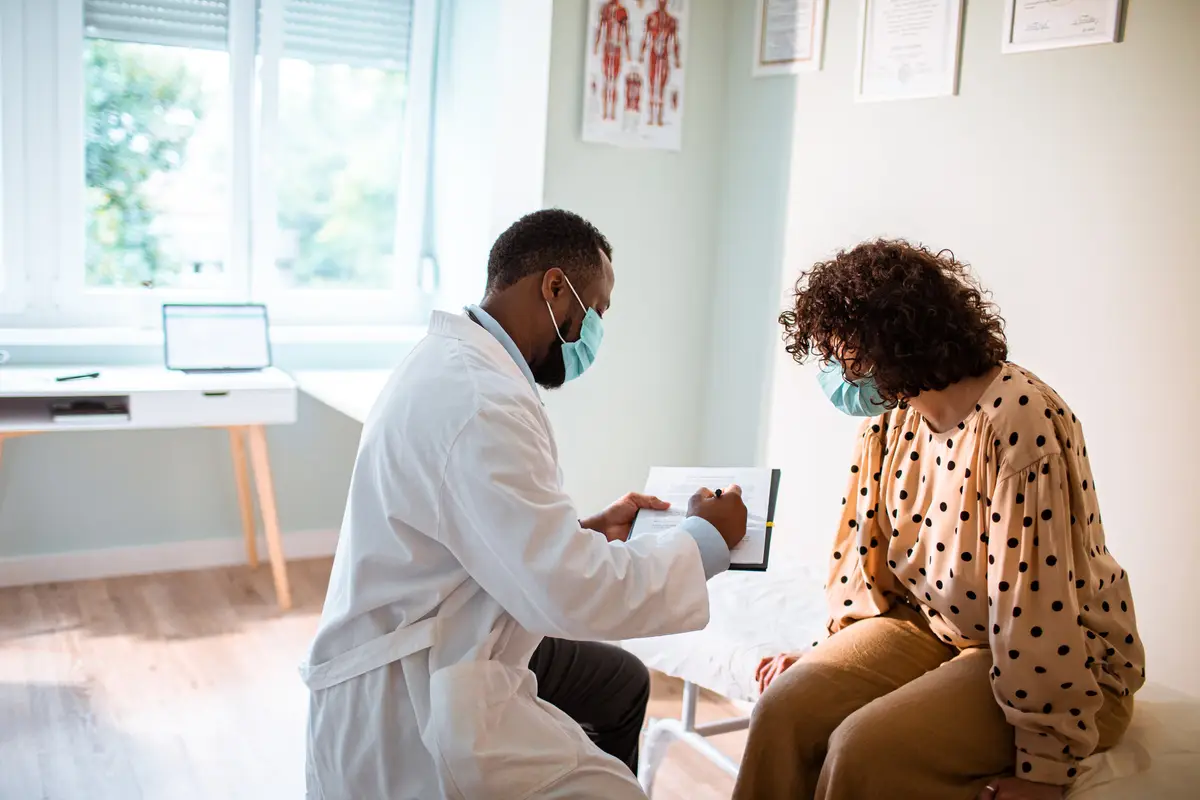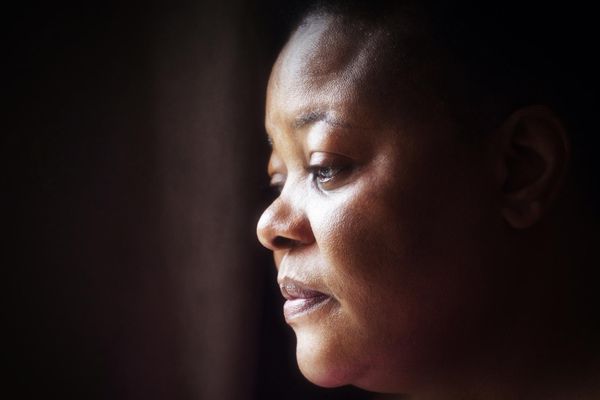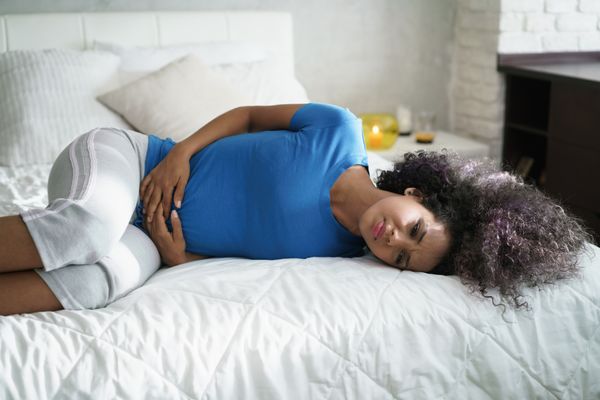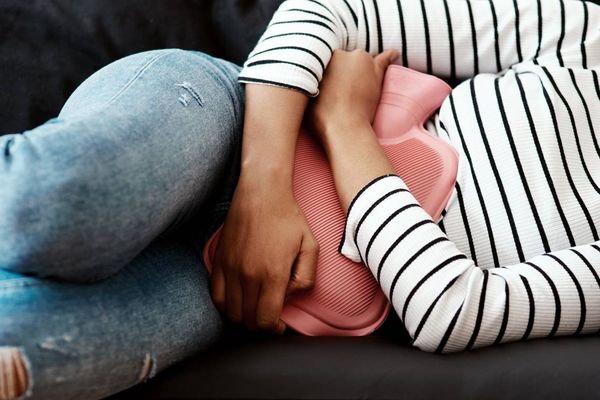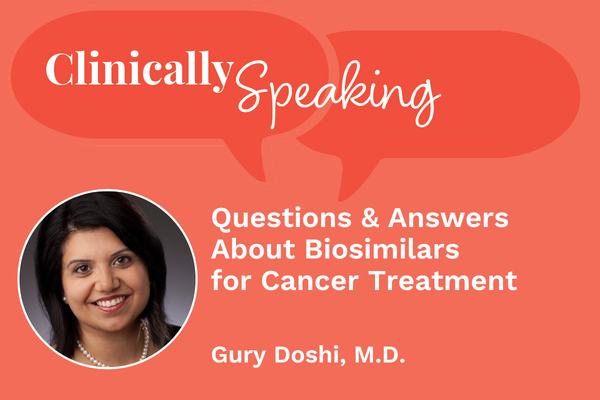If you find yourself having to wake up in the middle of the night to change your menstrual products, are bleeding for longer than a week or are passing large blood clots, it could be a sign of heavy uterine bleeding (HUB), also known as menorrhagia.
While it may be common for women who menstruate to have days when their flow is heavier than others, one in four women suffer from HUB. The condition may significantly disrupt women's lives, even causing some to abandon their everyday activities. If this sounds like you, it's time to talk to your doctor.
Dr. Rashmi Kudesia, assistant clinical professor of obstetrics and gynecology at CCRM Fertility and Houston Methodist Hospital and member of HealthyWomen's Women's Health Advisory Council, spoke with us about HUB and iron deficiency anemia (IDA). The interview has been edited for clarity and length.
HealthyWomen: Symptoms of HUB include having a menstrual flow that requires women to change their period products every hour for multiple hours in a row, a cycle that lasts longer than seven days, and pain in the lower part of the stomach and fatigue. How should women talk to their health care providers in a way to ensure their concerns are not dismissed as typical period symptoms?
Rashmi Kudesia: The first step is to track your periods and symptoms, ideally for at least a few months. Then you can visit your health care provider and say something along the lines of, "By tracking my periods, I learned that I typically bleed for 12 to 14 days every month," or, "I have severe, debilitating pain for five days each month." These types of specific statements are more useful than offering nonspecific complaints like, "I have heavy periods."
HealthyWomen: HUB may be caused by uterine fibroids, polyps, cancer or estrogen or progesterone hormone imbalances. What questions should women ask their health care providers to discover the cause of their condition?
Rashmi Kudesia: Once you've tracked your cycles and present that data to your provider, they should be able to clarify whether you are experiencing something out of the norm. Your provider will then identify the cause before treatment is initiated. The appropriate testing depends on your symptoms but will often include a transvaginal ultrasound to take a look at the uterus and sometimes a saline-infusion ultrasound or other similar tests, which have a higher rate of picking up structural problems, like a fibroid or polyp inside the uterine cavity.
When coupled with irregular or unpredictable cycles, HUB may suggest hormonal abnormalities that could relate to the thyroid, lack of ovulation or polycystic ovary syndrome.
HealthyWomen: What long-term health effects do women experience when HUB goes untreated?
Rashmi Kudesia: A major concern over long-term uncontrolled bleeding is the loss of iron, which is needed to produce hemoglobin, a substance in red blood cells that carries oxygen throughout the body. This lack of iron is called iron deficiency anemia (IDA). Symptoms of this condition include fatigue, headaches, lightheadedness and heart palpitations. IDA may also be asymptomatic so some women may not have any symptoms. Experiencing HUB for six months or more may lead to IDA. If the heavy bleeding is due to prolonged cycles linked to absent ovulation — where the abnormal hormonal pattern results in an uncontrolled bleed may last for weeks at a time — there are also risks of developing precancerous and cancerous changes to the cells that line the inside of the uterus.
HealthyWomen: HUB and IDA are two separate conditions. Should they be treated together or separately?
Rashmi Kudesia: Evaluation and treatment for both conditions should be pursued in tandem. If the bleeding is causing the anemia, then treating it is paramount. Yet, as a woman receives treatment for HUB, she should also get a full workup to determine if IDA was caused by the bleeding. (Other causes of the condition include a lack of iron in your diet, your body's inability to absorb iron, pregnancy or other sources of blood loss like gastrointestinal bleeding.)
HealthyWomen: What are the treatments for HUB? Can any of them also treat IDA?
Rashmi Kudesia: Treatments for HUB include medical management with hormonal medications, most frequently hormonal contraceptives, and sometimes surgical intervention depending on the cause of the bleeding. Iron supplementation is only a treatment for IDA, not HUB. Ibuprofen is used to alleviate menstrual cramping associated with HUB, which may be more severe in certain conditions that predispose to heavy bleeding (such as fibroids).
Some of the treatments for HUB may, indeed, help women who live with IDA. Hormonal contraception, for example, may help reduce the amount and frequency of bleeding. As a result of this treatment, over time, women with IDA may build their iron stores and blood counts back up. It's important to note, however, that while taking iron supplements may help that process occur more quickly, it will not address the bleeding.
HealthyWomen: Do HUB and IDA subside after treatment or are they conditions that women must monitor separately and address for the rest of their menstruating lives?
Rashmi Kudesia: Both of these conditions can subside, depending on the cause. For example, a uterine fibroid or polyp may easily be removed, though there is a risk of eventual regrowth. Hormonal abnormalities may be treated through lifestyle modification and/or hormonal contraception. In most instances, the only permanent curative option would be a hysterectomy, but this should not be the first line of treatment.
HealthyWomen: Are there risk factors associated with treatments for HUB and IDA?
Rashmi Kudesia: The treatments are generally benign, however, there may be some side effects. Iron pills may cause gastrointestinal complaints, and hormonal birth control shouldn't be used in some women if they smoke, have high blood pressure or have other certain medical conditions. Hormonal contraceptives may slightly increase the risk of blood clots, particularly in women who are at risk.
HealthyWomen: Are there any treatments for HUB that may conflict with treatments for IDA?
Rashmi Kudesia: No, these treatments would generally work in harmony rather than conflict. Surgical approaches associated with substantial blood loss could temporarily drop the blood count further, but they would also help resolve the anemia.
HealthyWomen: Women with IDA are recommended to eat iron-rich foods, including spinach, seafood, beans and red meat, as well as foods containing vitamin C such as broccoli, tomatoes, strawberries and leafy greens. Can the same diet help women who are experiencing HUB?
Rashmi Kudesia: This diet will help women with IDA restore their iron levels and be best equipped to absorb the iron. With the exception of red meat, these foods are generally healthy choices that are good for overall health. They will not, however, undo whatever hormonal or structural issue is behind the heavy bleeding.
You can learn more about HUB and IDA by visiting imayhaveida.com.
This resource was created with the support of Daiichi Sankyo, Inc.
- Iron Deficiency Anemia and Heavy Periods: What’s the Connection? ›
- I Thought My Heavy Bleeding Was Normal — Until It Almost Killed ... ›
- What You Need to Know About Heavy Menstrual Bleeding ... ›
- Heavy Menstrual Bleeding: Symptoms and Treatment - HealthyWomen ›
- Why It's Important to Speak Up About Heavy Uterine Bleeding ... ›
- Heavy Uterine Bleeding and Iron Deficiency Anemia Can Affect Mental Health, Relationships and Sexual Health - HealthyWomen ›

